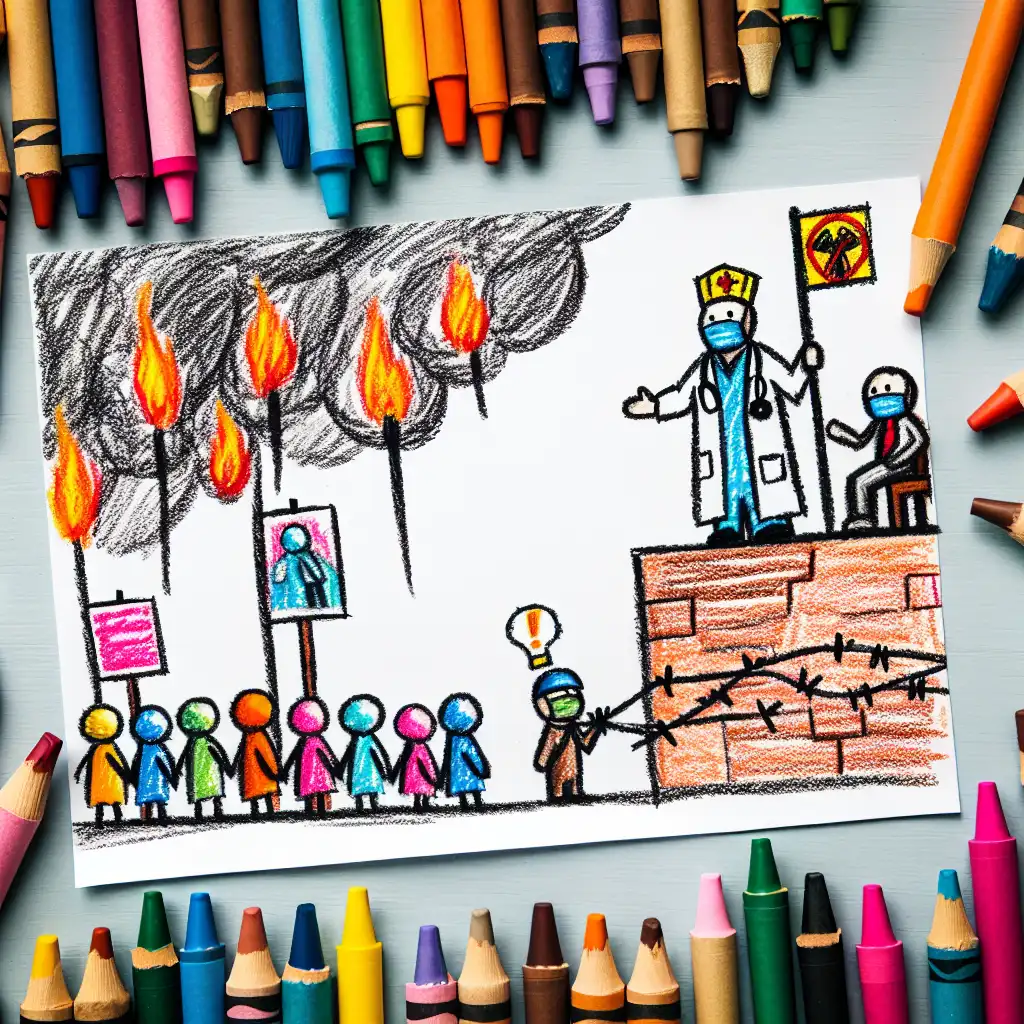NHS faces challenging few days during doctors' strike, warns Streeting

Explain Like I'm 5
Imagine you have a big toy box filled with all your favorite toys. One day, the toys decide they need a little break because they feel they aren't being treated fairly. So, they stop jumping out of the box to play. This means you can still reach in and grab a couple for a quick game, but most of your toys are taking a rest and won't come out to play like they usually do. This is a bit like what’s happening with the doctors in England's NHS (which is a big group of hospitals and doctors that help keep everyone healthy). The doctors are on a strike, which is like taking a break, and this means they aren’t doing all the usual health stuff they do. But they are still helping in emergencies, which is like grabbing those few toys you really need for a quick game.
Explain Like I'm 10
The NHS, which is a big organization that provides medical care in England, is having a tough time right now because many doctors are on strike. This means the doctors are not going to work because they want to show they are unhappy about certain things, like how much they are paid or their work conditions. Even though the doctors are striking, they still help out with emergency cases where people need urgent help – kind of like firefighters who always need to be ready, no matter what. But, because not all the doctors are working, some of the regular health services and check-ups might have to wait. It's a bit like when your school bus is running on a holiday schedule – it still runs, but not as often. The person named Streeting is warning that this strike will make things really tough for the hospitals for a few days.
Explain Like I'm 15
The NHS in England is facing significant challenges due to a doctor's strike that's set to last for five days. This strike involves doctors stepping back from their regular duties, except for providing emergency care. The strike is a form of protest where doctors are expressing dissatisfaction with issues like pay scales and working conditions. While emergency services remain operational, the absence of doctors is putting a strain on other hospital services, both urgent and non-urgent.
The timing and nature of this strike highlight deeper issues within the NHS related to funding, staffing, and resource allocation. Strikes like these can draw public and government attention to these issues, potentially leading to negotiations or reforms. However, in the immediate term, patients could see delays in scheduled treatments and reduced access to healthcare services, which might increase the risk for those needing regular medical support.
Experts are concerned about the broader implications of such strikes, including the impact on patient care and the overall efficiency of the health service during and after the strike. The outcome might also influence future policies and funding decisions for the NHS. Moving forward, key discussions between doctors' representatives and government officials will be crucial in resolving the underlying issues that led to the strike.
Want to read the original story?
View Original Source